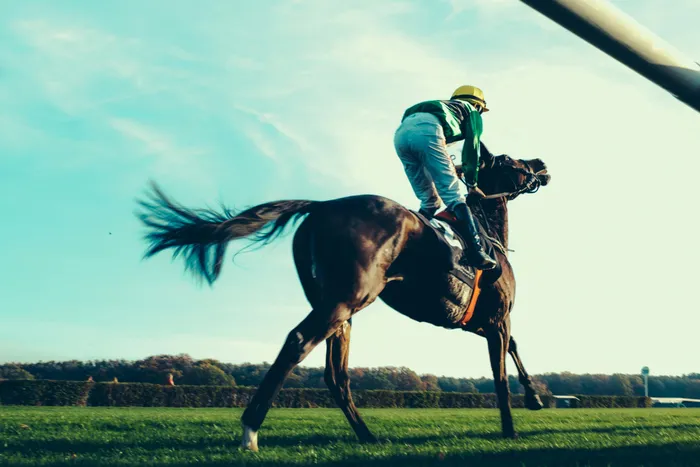NSPCA and horseracing fraternity at odds over treatment of horses

Horse racing has been placed in the spotlight as the NSPCA highlights concerns of animal cruelty.
Image: File picture
Horseracing is a multi-million rand business in South Africa, but behind the glitz and glamour of racing events and the betting that goes with it, are the horses, whom the National Council of SPCA's (NSPCA) say are subject to abuse, illegal harnessing and the racing of horses whom the body said are too young to paricipate in racing.
In a tense meeting between the NSPCA and the National Horseracing Authority, concerns were raised on crop (short whip) use, tongue-ties, and the racing of two-year-old horses.
The NSPCA, which recently launched its #ReinInThePain campaign, said the industry’s practices “compromise equine welfare” and questioned whether a regulatory body “so reliant on the success of the commercial side of horse racing can consistently and objectively enforce animal welfare standards.”
Dr Bryce Marock, Consulting Veterinarian at the NSPCA, said: “As the custodians of animal welfare in South Africa, we cannot and will not compromise our legal mandate to protect animals simply to make collaboration easier. The welfare of horses is not negotiable.”
At the meeting, the NSPCA accused the NHA of shifting responsibility rather than enforcing accountability. “Calling for ‘more research’ is a diversion from the core issue: meaningful enforcement and reform. The focus must now be on action, not justification,” Marock explained.
The organisation also raised concern that no criminal cases have, to its knowledge, been opened by the NHA against jockeys or trainers accused of contravening the Animals Protection Act through overuse of the crop or other welfare breaches. “When laws are broken, criminal charges must be laid,” Marock added. “Internal processes cannot take precedence over national legislation.”
The NHA, however, defended its record, insisting it adheres to international norms as a full member of the International Federation of Horseracing Authorities and Asian Racing Federation. NHA Chief Executive, Vee Moodley, said: “We are grateful that the NSPCA is open minded to understanding the horse racing industry and to working with industry stakeholders to protect the welfare of the horses. This can only strengthen the regulatory framework for the industry.”
Dr Matthew Bawden, Chief Veterinarian of the NHA, said: “Our responsibility is to ensure that racehorses are cared for according to the highest veterinary and welfare standards. Every regulatory decision we take, from vaccination rules to prohibited substances, is guided by science and the welfare of the horse above all else.”
Industry stakeholders also pushed back strongly against claims of abuse. Tony Rivalland, Chairman of the South African National Trainers Association (SANTA), said: “The suggestion that racehorses are abused is simply not true. This is a highly regulated, passionately run industry where horses receive exceptional care. Practices like tongue ties are not cruel, they are internationally recognised tools that aid breathing and improve safety. The real welfare risks lie in informal, unregulated racing, which falls outside the authority of the NHA.”
Charles Savage, Chairman of 4Racing, added: “The well-being of our horses is at the very core of racing in South Africa. Our horses are more than athletes, they are family, and their health, happiness, and dignity remain our highest priority.”
Gregory Bortz, Chairman of RaceCoast, weighed in on the debate, stressing that the welfare of the animal remains central to the sport. “Across every facet of our sport, the horse always comes first. Its welfare is and has always been our top priority. No business decision is ever taken that would compromise the wellbeing of the thoroughbred, a breed that is arguably among the best cared-for animals in the world.”
He questioned the NSPCA’s focus, saying: “With countless animals truly in need of the NSPCA’s vital support, it is perplexing that the organisation directs its limited resources toward an environment where animals already receive exceptional care, rather than to areas where help is most urgently needed.”
But the NSPCA remains unconvinced. It is demanding stricter penalties for crop overuse, including criminal prosecution where warranted, a ban on tongue-ties, and an end to racing horses before skeletal maturity. “South Africa’s animal protection laws are clear, and they must be upheld not just within racing, but across all industries that use animals,” Marock said.
tracy-lynn.ruiters@inl.co.za
Related Topics: